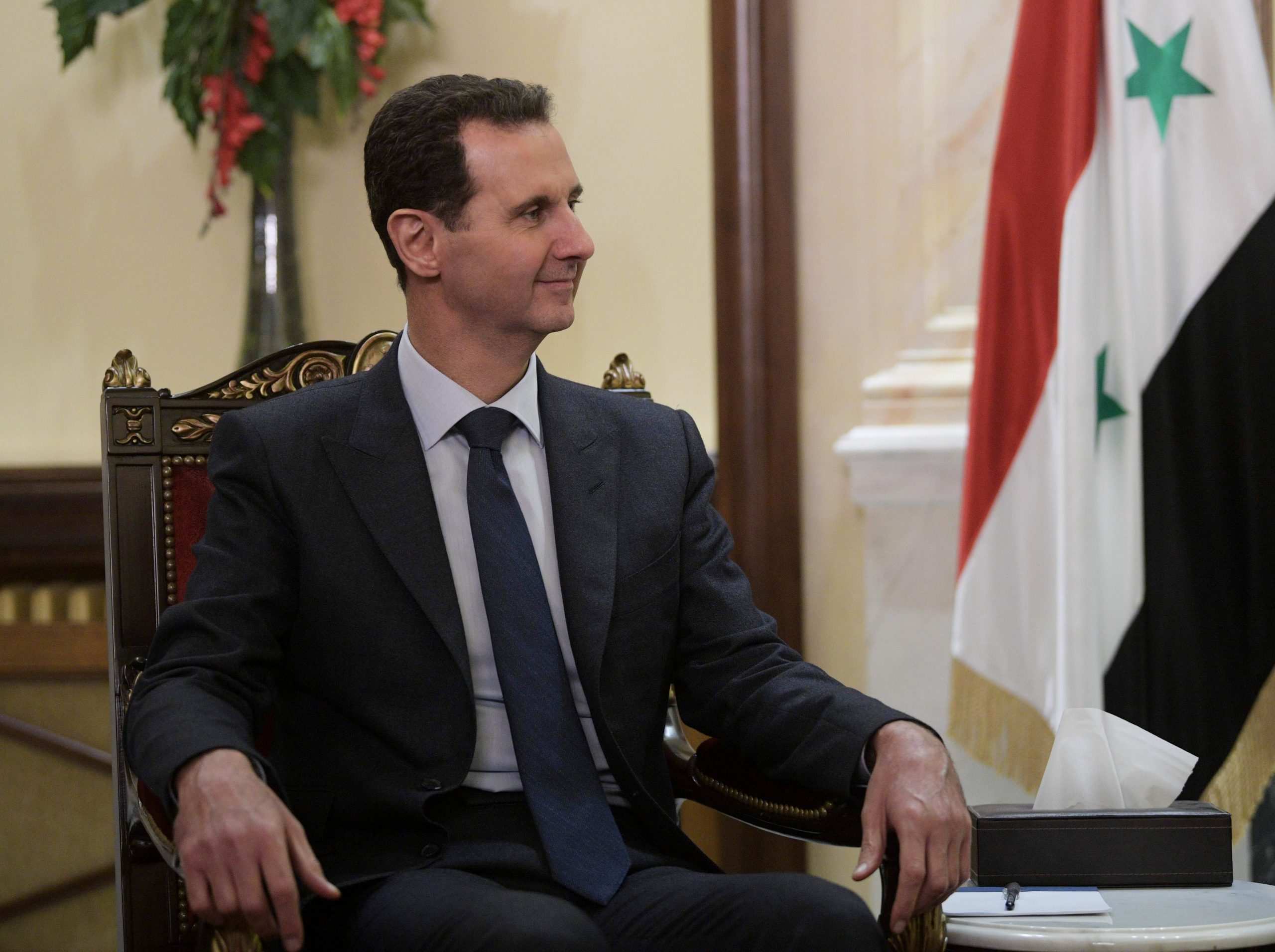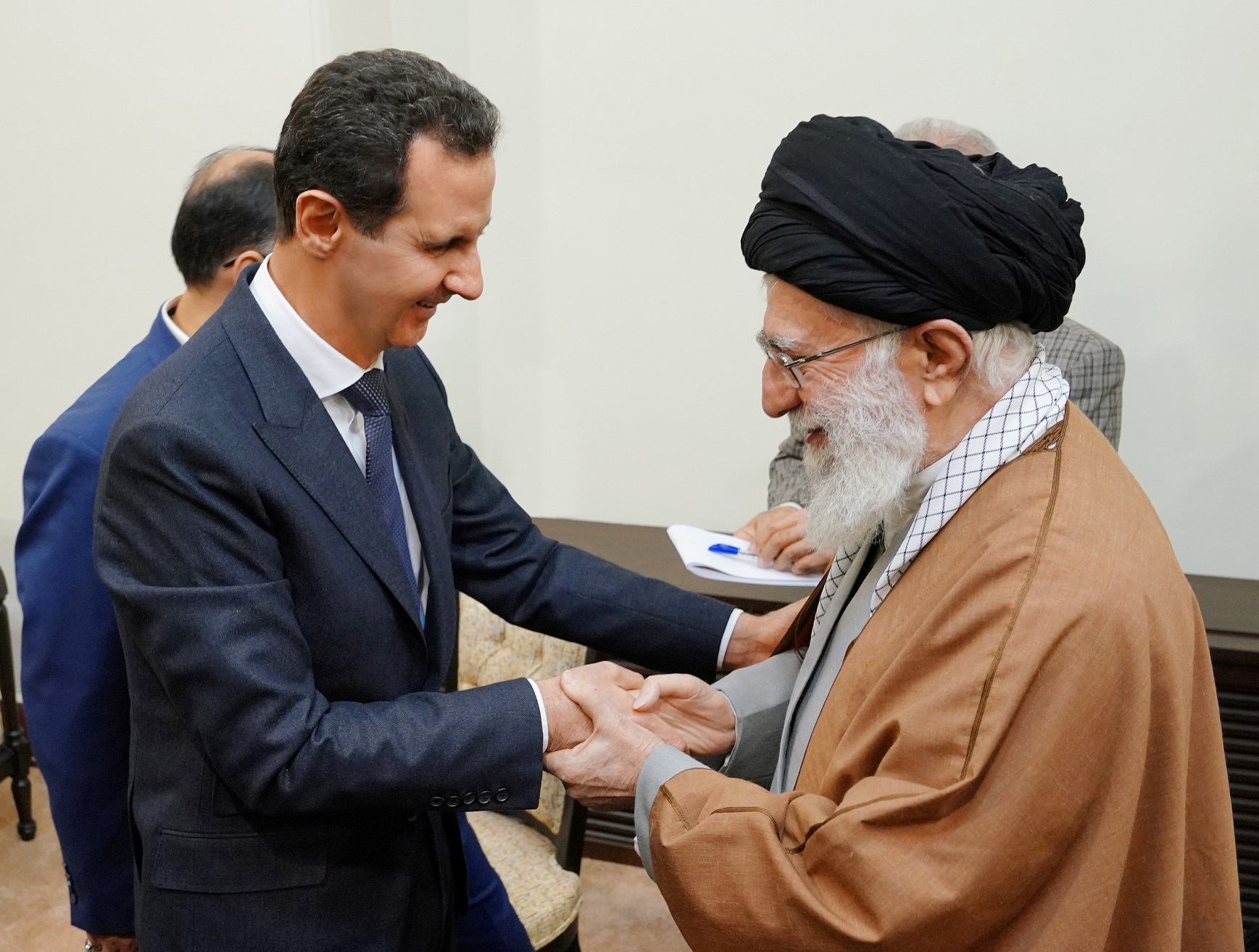Publications
Special Publication, July 11, 2022

Extending the peace of the Abraham Accords and giving it strategic depth and permanence so that it includes more countries in the Middle East requires making peace between Syria and Israel, because Damascus is a key element toward regional peace and stability. The collapse of the Tehran-Damascus axis upon the departure of Assad can translate into the establishment of peace between Syria and Israel, although this must occur with the help of the Syrian people themselves. After the departure of Assad, there are three critical steps to ensure that peace with Israel is grounded in an objective and strategic foundation for political, military, and security cooperation and coordination: the establishment of a regional security council; an Arab regional NATO; and a regional station for security and cooperation. These three steps will pave the way for regional economic integration toward a Middle East Common Market, like the European Economic Community (EEC).
Regional peace with Israel is no longer impossible, as proved by the Abraham Accords – keeping in mind that there are many differences between the peace signed with Morocco and that signed with other Arab states. Morocco is a unique case in the Middle East and North Africa because Morocco is the only state in the region that displayed a moral attitude toward the Jews during the Nazi Holocaust. It has deep, strong, and historical relations with the Jewish people, and this merits respect and admiration. Other peace accords – with the United Arab Emirates, Bahrain, and Sudan – are highly important, but these accords were one of the results of the Iranian threat. They are more representative of an economic peace, as the social aspect of peace (i.e., peace between peoples) was not given much attention, despite the fact that it is the most important aspect in any peace process and a safety valve for the permanence of regional peace with Israel.
Extending the peace of the Abraham Accords and giving it strategic depth and permanence so that it includes more countries in the Middle East first requires making peace between Syria and Israel, because Damascus is a key actor for regional peace and stability.
The departure of Assad will cause the collapse of the backbone of the Iranian project in Syria and the region. Through its existence in Syria, Iran reaches the Mediterranean to overlook Europe and strengthen its control of Lebanon. Assad’s departure will undermine Iran’s regional aspirations, because now, Tehran’s presence in Syria makes it very close to the northern border of Israel. In other words, it threatens Israel in the north and the south. Iran also attempts to besiege Israel through Jordan in the east.
However, the collapse of the Tehran-Damascus axis upon the departure of Assad can translate into the establishment of peace between Syria and Israel. The Israeli leadership and the international community in general should be ready for new strategic partners in Syria rather than Assad. Israel can never have permanent guarantees for the security of its northern border with Syria and Lebanon without the departure of Assad and a just solution to the Golan issue. Israel and the international community should also be aware of the importance of change in the Syrians’ convictions following the manifestation in Syria of a deep social movement that can never be deterred.

The majority of Syrians believe that Israel is protecting Assad, and if Israel continues in this course, it means that it is content with the crimes and massacres committed by Assad, and that Israel condones the demographic change in Syria. As such, Israel antagonizes the Syrian people. Therefore, decision makers in Israel should be aware that gambling on Assad is a wrong venture that has risky consequences for the region, including Israel. Establishing new communities in Syria with the aim of creating demographic change, especially in Damascus and the south of Syria, will have serious consequences for all involved parties. This will never serve the interests of Israel and the region, and instead will advance Iran’s regional domination project.
If Israel is truly keen on expelling Iran and terminating Tehran’s influence in Syria and the region, it must understand it will never be able to do that without the help of Syrians themselves. Despite the years-long campaign, targeting Iran’s bases in Syria only with airstrikes has been and will be in vain without Syrian boots on the ground.
Similarly, if Israel and the international community are committed to the restoration of security and stability in Syria, they must understand this cannot be achieved without the return of Syrian refugees to their homes and the implementation of transitional justice. Terminating the no-peace and no-war status will open more horizons for Abrahamic Peace toward permanent peace and cooperation with a new Syria, which in turn will mean that all countries in the region can be ready for peace and normalization with Israel; no country will have any excuse for not making peace or normalizing ties with Israel.

After the departure of Assad, there are three critical steps to ensure that peace with Israel is grounded in an objective and strategic foundation for political, military, and security cooperation and coordination. In turn, this tri-partite project will create new economic, cultural, diplomatic, and other horizons.
The first part of the project is the establishment of a regional security council (RSC) under the auspices of the United States and its allies. This can be initiated immediately by Israel and the countries that have so far signed peace accords. Other countries in the Middle East and North Africa can join later. The importance of this enterprise lies in the fact that it will be the nucleus for Arab-Israeli and regional dialogue and cooperation when the parties meet around the negotiating table.
The second enterprise is the establishment of an Arab regional NATO (ARN). I proposed this idea to Israel and the United States concurrently with the US President’s visit to Saudi Arabia in 2017. With ARN working under the supervision of NATO, the United States and its allies will no longer need to send their forces to the Middle East. ARN forces, which will be formed from all member states of the RSC, will face all regional military and security challenges.
The third enterprise is the establishment of a regional station for security and cooperation (RSSC) by RSC member states. I look forward to having the headquarter of this RSSC in Damascus to achieve cooperation, coordination, and regional security integration through coordination under one roof where permanent representatives of security institutions of the member states can exchange data and ideas for fighting terrorism and extremism. The goal is to protect security and stability of the member states and their allies through security integration.
The three above-mentioned steps will pave the way for regional economic integration toward a Middle East Common Market, like the European Economic Community (EEC).
Regional changes and challenges have validated my vision of 2016 when I made a speech on the need for a just peace between a new Syria and Israel. In the ensuing years, particularly in light of the war in Syria and the war in Ukraine, it has become even more evident that the world today is on the verge of a new world order. This means that important strategic changes will take place. One of these changes will involve the Security Council, as important states like Germany will enjoy the status it deserves and will play a great role. The United Nations will also change, just as the League of Nations was changed after the World War II.
The creation of a new Middle East requires all parties to demonstrate courage, will, and bravery. It is now time for today’s exhausted and beleaguered Middle East, which is drowning in seas of blood and agonies, to terminate wars and live in peace, stability, and security, based on peace and the culture of peace.


